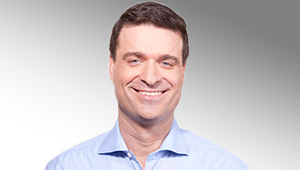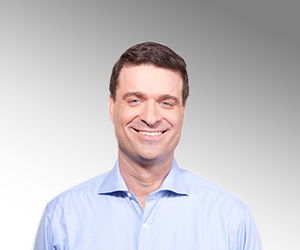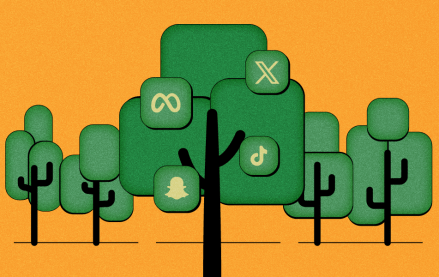Huge’s Aaron Shapiro: You have to protect your employees’ interests

 This is “View from the Top,” the latest in a new Digiday series featuring creative leaders talking about their career paths and leadership perspectives. Read previous interviews here.
This is “View from the Top,” the latest in a new Digiday series featuring creative leaders talking about their career paths and leadership perspectives. Read previous interviews here.
Aaron Shapiro is the CEO of Brooklyn-based Huge, a digital agency that over the course of just nine years, has grown from a small startup into an international hot shop creating smart, innovative, design-focused work.
What was your first experience as a boss?
The first business experience I had was probably in junior high school. I had this not-so-novel idea of a lawn-raking service. So I ran around and put fliers in everybody’s mailbox, and roped in all my friends to do the raking.
I thought this was a really great thing. Then, one of the people whose house it was gave the kid raking the lawn $20 to rake it. He got mad, because under my arrangement, he only got 10 bucks out of it. Needless to say, they all quit, so I had to spend weekends raking all the houses myself. It was my early foray into management. It underscored the importance of how being an executive is a partnership with people you work with and how important it is to create a work environment where it’s fair for everyone.
How does that relate to how you run Huge today?
Leadership is about creating an environment where people want to work, where they feel like their interests are protected. The broader thing is that one of the things I’m most proud of is the number of jobs and careers Huge has been responsible for creating.
Was your family a very entrepreneurial family?
I had the opposite of a business family. My father is a professor of electrical engineering. My mother was a dentist and also taught at university. My brother and his wife are professors too. As a result I grew up in a very cliched, intellectual house. We had no television, there was always classical music playing. I remember one time there was some contest at school and my prize was the Michael Jackson “Thriller” album and my parents didnt know who Michael Jackson was when I brought it home. I was really interested in computers, and because of my father, we always had a fancy computer in the house. But my parents wouldnt let me play games. So if I wanted to play games I had to program my own video games.
What kind of a student were you at college?
I was really excited to be an adult and start creating companies. I was a good student but admittedly not very focused on academics. I started a magazine. it was a male version of Seventeen magazine. I got it published by Time Warner as a student publication. The thing that drew me to starting the magazine was was it was really a creative endeavor, and I really like the creative process of building things. That was really exciting and rewarding.
How has your leadership style changed as Huge as grown from small to… well, huge?
My leadership style has completely changed. It’s been a different job every year. In the early days it was very hands on. I was a project manager and I handled client services. When you’re a small group you do everything. And then as the company gets larger, you get a little more removed from the work. I think as a boss you have to spend more time thinking about the organization and if it is structured correctly. It’s definitely been a shift. A lot of my job is preserving and protecting that culture.
How do you decide what to ignore, and how do you make sure you’re not getting bogged down in small administrative things?
I make sure I surround myself with smart leadership that are good at those specific things. So I’m not personally involved in them. It really comes down to hiring. There are always things that might not be fun to me, but are fun to others. So hire those people.
How do you make sure you understand the concerns of the youngest people at your agency?
Twice a year I do 10-on-ones, where I meet with small groups of people throughout the agency. Managers aren’t allowed. I really just talk to them about what’s working and what’s not working. I take copious notes. The things range from the trivial — “more bananas” or “our chairs are bad” — which I can fix immediately. Then, there are the long term things like career paths and advancement.
So where do you stand on the “millennials are entitled” debate?
It’s a cliched thing with old farts talking about things they don’t understand. It’s silly. It’s not a real thing. I find that the millennials we have are talented, hardworking and smart, same as people that are older. Yes, they’re different than other generations. They use the Internet in an intuitive fluid and natural way. As a result they’re really good at understanding the world we live in.
More in Marketing

The case for and against organic social
Digiday has delved into the debate, weighing the arguments for and against marketers relying on organic social.

Inside Google’s latest move to postpone the cookie apocalypse
Despite Google’s (most recent) assurances that it would stick to its (newest) game plan, there has been a lot going on as of late.

While Biden signs the TikTok bill, marketers still aren’t panicking
No one seems convinced (yet) that an outright ban will happen anytime soon.





